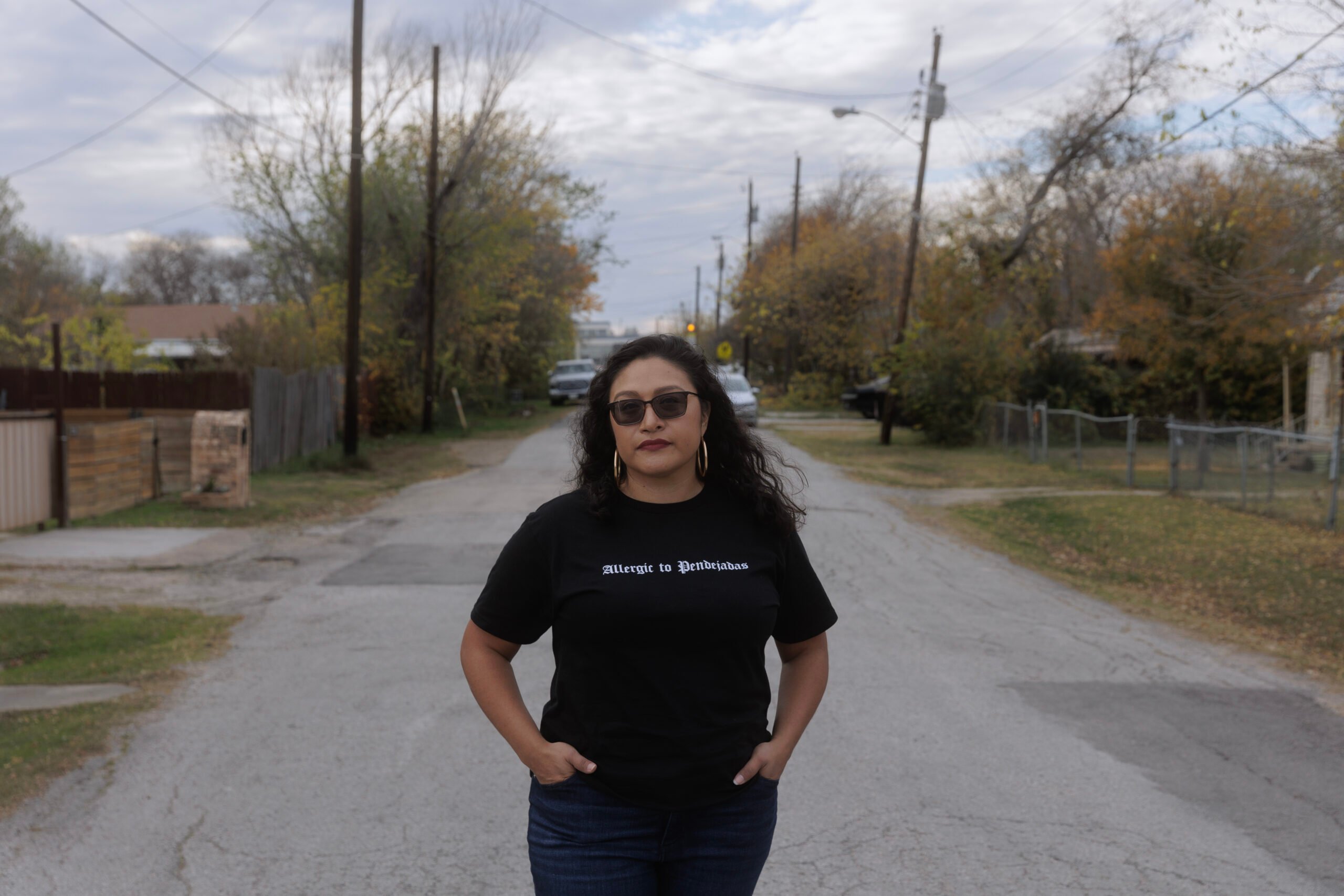
Sexism, Stigma and Susan Hawk: Let’s Find a New Way to Talk About the Dallas DA
Above: After defecting to the GOP last year, Susan Hawk went on to become the first female district attorney elected in Dallas.
There was no hotter topic in the Dallas political gossip mill this summer than the “disappearance” of Susan Hawk, Dallas’ newly-elected district attorney.
Hawk, who defected to the GOP last year to become the city’s first female DA, was elected as part of a concerted Republican effort to oust Democrat Craig Watkins. Generally accustomed to taking a trouncing in local elections, Dallas Republicans looked hard for a candidate who could replace an administration marked with controversy and chaos.
In Susan Hawk, the party found what looked to be an ideal candidate. Mari Woodlief, a Dallas political consultant and Hawk’s former campaign manager, told the Texas Observer she conducted “extensive polling, out of [her] own pocket” in search of a candidate who would be able to compete with Watkins. She said she knew needed “a female or a minority,” and someone with prosecutorial experience. Hawk’s judicial experience also helped.
Hawk won the gig by a slim margin, besting Watkins by just 3,300 votes. She was elected as a reformer, vowing to operate the DA’s office with an unprecedented level of transparency. But it quickly became clear that Hawk had been a little more opaque with regard to her personal life.
In March, the Dallas Morning News reported that Hawk had entered treatment for prescription drug use while running for office two years earlier. Later, a series of high-profile, allegedly retaliatory firings of key prosecutors and other staff would make headlines. Then, by August, the gossip machine really started to rev up — Hawk had been missing from her post for at least four weeks, and people were beginning to wonder why.
When a woman is identified as “emotional,” it becomes much more difficult for her to be taken seriously, whether or not she’s actually good at her job.
At the end of August, Hawk finally released a statement announcing that she would be taking four additional weeks of (unpaid) leave in order to seek treatment for an episode of “serious depression.” Before the digital ink had even dried on that statement, people began to wonder whether Hawk would be able to carry out her duties as DA while she dealt with, as one of Hawk’s neighbors told the Dallas Morning News, her “emotional problems.”
Maybe only a woman could have defeated Craig Watkins, but only a woman would have been cast as too emotional to fulfill the duties of her job. Hawk’s colleagues and pundits alike have openly questioned her ability to do her job without being “too emotional.” The dozens of articles written about Hawk’s absence are littered with this kind of coded language — “unstable,” “erratic,” “paranoid,” “irrational” — used to describe and deride women, particularly those in positions of power.
For centuries, women have been accused of being too “emotional” to hold high office, from British queens to Hillary Clinton, and have frequently had their complaints and decisions minimized by language that equates emotional volatility with mental instability and, fundamentally, femininity.
“It’s easy to use those words, ‘unstable’ and ‘erratic,’ because she is a woman,” Woodlief told the Observer. “If she were a man, those words might not be used.”
When people call Susan Hawk irrational, unstable and paranoid, what they’re really getting at is: Bitch is crazy. When a woman is identified as “emotional,” it becomes much more difficult for her to be taken seriously, whether or not she’s actually good at her job.
When the gender roles are reversed, these rhetorical rules don’t apply. Hawk’s own predecessor, Craig Watkins, was a frequently volatile man known for engaging in screaming matches with City Council members. In the vast coverage of Watkins’ tenure as district attorney, though, it is nigh impossible to find references calling him “emotional” or referring to his council meeting tantrums as “erratic.” As the Dallas Morning News noted in August, Watkins also took an unexplained leave of absence from the district attorney’s office, only he was facing a federal investigation, not debilitating depression.
Compounding the issue is the reality that Hawk is dealing with a mental illness, which carries a great deal of stigma and which has been fixture of the campaign against Hawk. She’s been accused of using her depression as a “mental health force field” to ward off detractors, while others have reported Hawk’s depression as something she “says” she’s struggling with — odd considering it’s been a long time (never) since I read of someone merely “saying” they have cancer or a broken foot, as if they might be mistaken or prone to prevarication. Some have even speculated that Hawk is lying about her depression as a cover-up for another stint in rehab.
Compounding the issue is the reality that Hawk is dealing with a mental illness, which carries a great deal of stigma and which has been fixture of the campaign against Hawk.
This belittling sexism and mental health stigma come together to cloud what is otherwise a much-needed conversation about Hawk’s competency, and it potentially minimizes any actual wrongdoing in Hawk’s shop, from improper firings to alleged attempts to misuse public funds. It is possible to criticize Susan Hawk and her administration without stooping to outdated sexist stereotypes and the harmful assumption that a person who is depressed is too unstable to adequately do their job after seeking treatment.
On Tuesday, Hawk was released from the inpatient facility where she was receiving treatment for her depression, and she said in a statement that she was feeling “stronger and healthier than ever.” Still, even if she is able to return to her job in perfect health, there are many who will still doubt her ability. Just last week, the Dallas Observer’s Jim Schutze compared Hawk to a “scary-bad imitation” of Carrie Mathison, the Homeland character who suffers from severe bipolar disorder. “Apparently, when Hawk comes over to talk to you, you have to turn off your phone and computer so ‘they’ will not be able to listen in,” he wrote, mocking her. “When she comes back to work, will ‘they’ be coming with her?”
Perhaps Susan Hawk is a bad district attorney, and that’s a question that will certainly be asked when she returns to work on Friday, if not sooner. But if she is incompetent and incapable of doing her job, as many believe, it won’t be because she is an “emotional” woman. She may return to work with her illness at bay, and still be dishonest or difficult to work for. Her record as district attorney may be indefensible, but that does not mean that she isn’t being criticized unfairly due in large part to her gender and mental health status.
The question that continually comes to my mind is: Would we be talking about her this way if she were named Steve Hawk?


